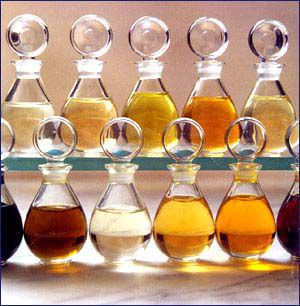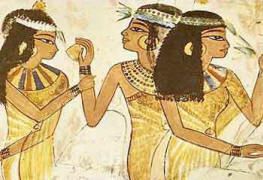Aromatherapy
The most common uses of essential oils
The most common uses of essential oils are:
• self-medication for comfort, calm and relaxation (baths, massages, cosmetics) and preparation for a good night sleep;
• a component of traditional medicine: Ayurveda, etc..
• Aromatic use in psychology.
Medical uses:
• disinfection and wound healing or treatment of injuries (burns, ...);
• supplementation with chronic medical treatment;
• dermatology and cosmetic dermatology;
• the choice of treatment by a qualified aroma therapist, pharmacist or naturopath.
The properties of essential oils are:
• Anti-infective: antibacterial, antifungal agents, pesticides, insecticides and repellents
• anti-inflammatory
• antihistamines
• antispasmodic
• analgesics, anesthetics and analgesics
• soothing, hypnotic and anxiolytic
• digestive properties
• antitoxic
• antivenin
• stimulating or soothing
• aphrodisiac
• etc..
Medical concept of Aromatherapy
Aromatherapy is the name we give to the use of essential oils in different application: dermal, oral, nasal, ear, olfactory etc. to complement preventive care or even diseases healing in humans, animals or plants.
The essential oils act at the disposal of symptomatic disorders of functional or organic infection.
Aromatherapy
(Etymology: Latin "aroma", Greek "ἄρωμα - aroma '= flavor, herb, Greek" θεραπεία - therapeia "= care, treatment)
Essential Oil
It is a liquid, concentrated and complex extract, obtained by the distillation of the plant: leaves, flowers, wood, roots, bark, fruit, etc.. = Distilled from aromatic plant species.
A long History shortly described
40000 BC, Australian Aborigines worked with aromatic plants through fumigation (smoke inhalation from herbs) and bandages (pasta clay mixed with herbs and applied to the skin).
There are writings from 5000 BC that tell us that the two strong herbs used in Chinese medicine were: ginger and cinnamon (still really common nowadays).
This is especially with Ayurveda that India brings a medical approach based on herbs and their energy actions.
2800 BC Egypt uses aromatic oils in their mummification and ingested medication.
Among the Greeks and Romans, Hippocrates of Cos, Discoride and Galen wrote several books about their knowledge about medicine using the benefits of the plants.
By 1200 Avicenna (Ibn Sina), an Arabian prince and doctor invented the first alembic that could distill herbs. This technology is brought into Europe through the Arab invasions and crusades in Spain.



